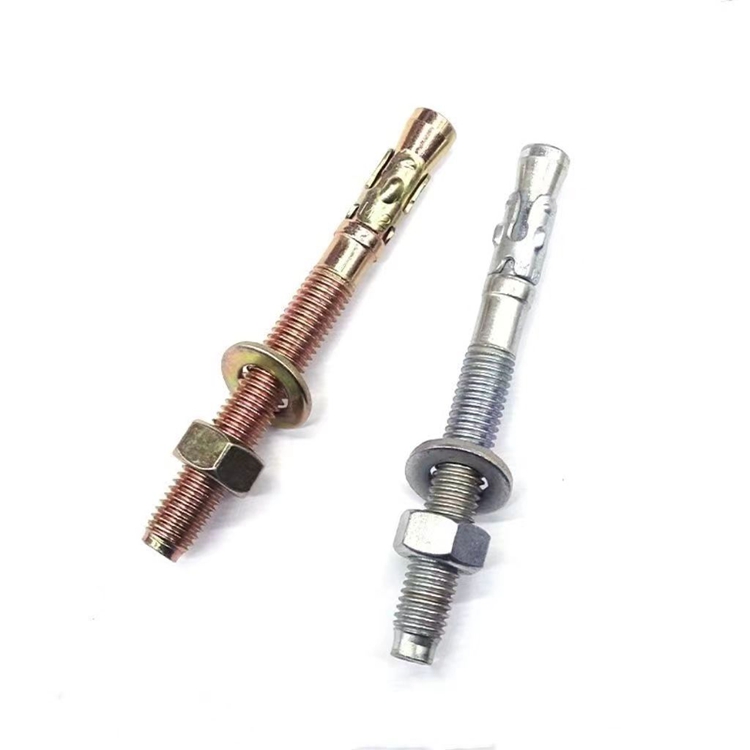Innovative Solutions for Barrel Bolts and Nuts Manufacturing in the Modern Industry
Aug . 10, 2024 20:30 Back to list
Innovative Solutions for Barrel Bolts and Nuts Manufacturing in the Modern Industry
The Role of Barrel Bolts and Nuts in Secure Fastening Solutions
In modern manufacturing and construction, the importance of robust fastening solutions cannot be overstated. Among the wide array of fastening devices available, barrel bolts and nuts play a critical role in ensuring security and stability in various applications. This article explores the functions, applications, and manufacturing aspects of barrel bolts and nuts, highlighting their significance in the industry.
What Are Barrel Bolts and Nuts?
Barrel bolts, also known as sliding bolts, are mechanical devices used to secure doors, gates, and cabinets. They are designed with a cylindrical body (the barrel) and a sliding mechanism that locks into a catch or a plate fixed to the door frame. This simple yet effective design provides an additional layer of security, preventing unauthorized access while allowing for easy operation.
Nuts, on the other hand, are hexagonal or square pieces of metal with a hole in the center, designed to fit over a bolt's threaded shaft. They secure various components in place by providing a tight fit, which is essential in assemblies where tensile strength and durability are paramount.
Applications of Barrel Bolts and Nuts
The versatility of barrel bolts and nuts is evident in their wide range of applications. In residential settings, they are commonly used for securing doors and gates, providing an extra measure of safety. In commercial construction, they can be found in securing equipment, storage units, and machinery. They are also prevalent in automotive and aerospace industries, where robust fastening solutions are necessary to withstand vibrations and stress.
One of the key advantages of barrel bolts is their ease of use. They can be installed quickly and require minimal maintenance, making them a favored choice for both DIY projects and professional installations. Additionally, these fastening devices are available in various materials, including stainless steel, which enhances their resistance to corrosion, making them suitable for outdoor applications.
Manufacturing Barrel Bolts and Nuts
barrel bolts and nuts manufacturer

The process of manufacturing barrel bolts and nuts involves several key steps to ensure quality and durability. High-grade materials such as carbon steel or stainless steel are commonly used, given their strength and resistance to wear. The manufacturing process typically includes
1. Material Selection Choosing the appropriate material is crucial for durability and strength. Stainless steel is favored for its corrosion resistance, while carbon steel is commonly used for its strength characteristics.
2. Forging and Casting The initial shape of barrel bolts and nuts is often formed through forging or casting processes. This step involves shaping the metal using high pressure or pouring molten metal into molds, respectively.
3. Machining After forming, the parts undergo precision machining to achieve the desired dimensions and tolerances. This step may include threading the nuts and preparing the surfaces for a smooth finish.
4. Finishing Finally, the barrel bolts and nuts go through finishing processes such as polishing, plating, or coating to enhance their appearance and resistance to environmental factors.
5. Quality Control Rigorous testing is essential to ensure that each fastening device meets industry standards and customer specifications. This may involve tensile testing, corrosion testing, and dimensional inspections.
Conclusion
In conclusion, barrel bolts and nuts are vital components in various industries, providing reliable and secure fastening solutions. Their versatility, ease of use, and durability make them a staple in both residential and commercial applications. With advancements in manufacturing technology, these devices continue to evolve, offering enhanced performance and reliability. As the demand for secure and efficient fastening solutions grows, barrel bolts and nuts will undoubtedly remain at the forefront of manufacturing and construction practices.
Latest news
-
Premium Cabinet Bolts Supplier | Wholesale & Custom Solutions
NewsAug.24,2025
-
Reliable Axle Nuts Supplier | Quality & Precision Fasteners
NewsAug.23,2025
-
Durable Bolts for Lawn Mower Handle - Top Supplier & Manufacturer
NewsAug.22,2025
-
High-Quality Bolts for Lawn Mower Handle Supplier & Manufacturer
NewsAug.21,2025
-
Reliable Axle Nuts Supplier | High-Quality Automotive Parts
NewsAug.19,2025
-
Premium Wire Bolts Suppliers | Durable & Reliable Fasteners
NewsAug.18,2025
